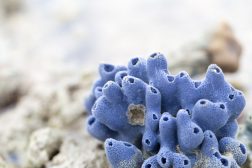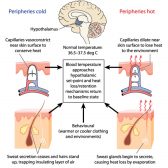Definition
noun, plural: exogenous pyrogen
A type of pyrogen that is of microbial origin, such as the lipopolysaccharide in the cell wall of phagocytosed gram-negative bacteria
Supplement
Pyrogens are substances that induce fever. In the presence of an infectious agent, such as bacteria, prions, viruses, viroids, etc., the immune response of the body is to inhibit their growth and eliminate them. Fever usually occurs during an infection as part of the body’s natural defense against these invading agents. The hypothalamus regulates the temperature of the body to maintain a temperature within the normal range. It makes the body respond to cold by generating heat such as through shivering (i.e. skeletal muscle contraction).
Pyrogens may be exogenous or endogenous. Exogenous pyrogens are of microbial origin. An example of exogenous pyrogen is the lipopolysaccharide, which is a component of the cell wall of certain gram-negative bacteria. When it binds to a lipopolysaccharide-binding protein of the immune cell, it forms a complex that binds in turn to a CD14 receptor of a macrophage. The latter will then be
stimulated to release endogenous pyrogens such as interleukin-6, interleukin-1, tumour necrosis factor, interferon-alpha, gp130 Receptor Ligands, etc. 1
Compare:
See also:
Reference(s):
1 Dinarello, C. A. Cytokines as Endogenous Pyrogens. The Journal of Infectious Disease 1999 179: S294-S304.







